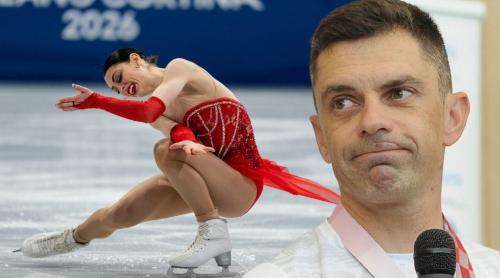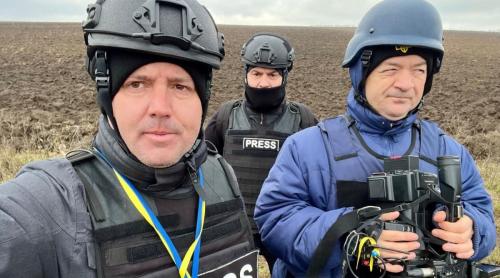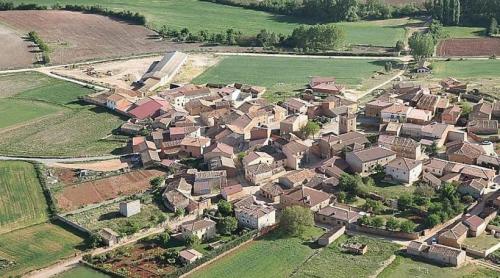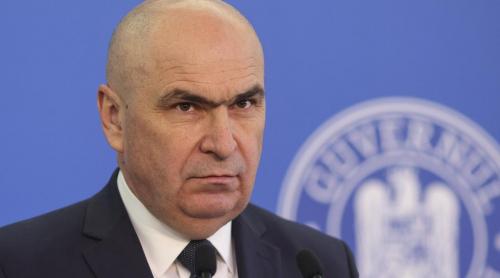
People used to call Bucharest “little Paris”. It was saucy, its inhabitants seemed more civilized and more educated than they are today, and it didn’t look as kitschy as it does today
FRANCE-ROMANIA: TWO CENTURIES OF FRIENDSHIP
People used to call Bucharest “little Paris”. It was saucy, its inhabitants seemed more civilized and more educated than they are today, and it didn’t look as kitschy as it does today. The self-respecting Romanians spoke French, and the school helped them choose this language as the most important one. The Romanian intellectuals used to be attracted by the French school. The modernization of the Romanian culture evolved under the sign of the French spirituality.
STUDIES IN PARIS
The intellectuals were the first actual Romanian immigrants in Paris. The intellectuals attracted by the ideas of the 1789 Revolution. The nineteenth century is full of personalities that chose the French Universities to study. Petrache Poenaru, who studied in Paris, was an organizer of the Romanian education system. Nicolae Balcesu also stayed in Paris where he studied the history philosophy. Titu Maiorescu, another symbol of our culture, studied in Paris like Nicolae Iorga, who studied history in the French Capital.
IMMIGRATION
Afterwards, a lot of Romanians in the country’s political, cultural and economical elite had to leave Romania during the communist dictatorship. France was one of the favorite countries of the ones that chose the exile. Names like Mircea Eliade, Eugen Ionesco, Emil Cioran, Elvira Popescu, Vladimir Cosma, Paul Goma are the most important when it comes to the Romanian exile in France. Today, the Romanian Diaspora in France counts tens of thousands of souls and most of them still feel attached to their mother country. Throughout years, they managed to create several cultural associations destined to support and promote the Romanian spiritual values.
DIPLOMACY
From the political point of view, the relationship with France is more than 200 years old. After the French Revolution in 1789, Diplomat and Writer Claude-Charles de Peysonnel proposed and supported the initiation of a French connection in the Romanian Principalities, so France initiated a general consulate in Bucharest in 1795 and a Consulate in Iasi in 1798.
On the 29th of November 1938, the Romanian-French diplomatic relations got to the embassy level according to the Romanian Ministry of External Affairs, which presents a synthesis of bilateral relations with France that everyone can access on the institution’s website.
In September 1944, the Romanian Government recognized the temporary Government of General Charles de Gaule.
On the
20th of November 1991, “The Treaty of friendly
understanding and cooperation between Romania and the French Republic”
was signed. It became valid on the
21st of October 1992.
THE SYMPATHY MOMENT
A moment of maximum sympathy from France for their Latin fellows in the Eastern Europe took place at the revolution in December 1989. At that time, Romania became the star of the Occidental Press, and the French Press seemed to be the most interested one. The effervescence of the days of the Romanian Revolution, the bloodiest rupture from communism in the former soviet block, got to many Frenchmen who felt they should come help us. The images with the Romanian orphanages, the villages destroyed by the industrialization strategy of the country, as well as the ones with the Romanian happy of getting free from national captivity, brought trucks with help to Romania from the West. France became Romania’s lawyer in its European and euro-Atlantic strategies. No matter how many ups and downs the bilateral relations had to go over after 1990, Bucharest constantly benefited from the help from Paris as well as from the French critics. However, they were all a result of the friendship between the two countries.
VERY IMPORTANT VISITS
Even if there were several problems from time to time, Romania always had a partner in France. The relations gained momentum after 1990 and the most significant moments were the ones of the visits in Romania of the two new Presidents, Francois Mitterrand (April 1991) and Jacques Chirac (February 1997), or the visit of the President of the French Republic National Assembly, Philippe Seguin (November 1994). The Romanian Presidents paid official visits as well (in 1992, 1994, 1999, 2000, 2003, 2005 and 2006). The main issue of the discussion regarded the euro-Atlantic support from our old ally and friend, France, as well as the increase in the French investments in our country (France is the third most investing country in Romania).
NERVOUSNESS AND RECONCILIATION
The last years, which were dominated by the Romanians’ freedom to move in the Schengen space, have brought problems inevitably. All these years, Romania strived to convince the Occident, including France, that the Romanians would not immigrate massively, because Romania needed more workers due to the economical increase that wasn’t about to stop. The reality contradicted the leaders in Bucharest, because many Romanians went west attracted by the important plusses in the salaries in the Occidental countries. Unfortunately, not all of the ones that chose to relocate were hardworking and dependable Romanians.
We sent crooks, beggars, hookers, we also traded minors, and we camp like the migrants at the border of the great cities, because we didn’t miss one thing that blots the image of a civilized European state. We crazed the French in such a way that they expelled massively Romanian citizens, mostly Roma. On the 30th of August 2002 Romania and France, which had Nicolas Sarkozy as the Minister of Internal Affairs, signed an agreement that would facilitate the expelling of all the Romanians that were in France illegally and their reintegration in the Romanian community.
WE SHOULD HAVE REMAINED SILENT
There have been a lot of times when we annoyed France. The leaders in Bucharest thought Romania could leave old alliances behind in order to favor new ones. They even invented an axis that left France aside, because they were desperate to please the Administration over the Ocean and its European ally, the Great Britain. We hurried to be the first ones to promote any proposition from the Americans, which irritated our European friends. In 2003, the French President at that time, Jacques Chirac, expressed his anger at us in a speech in Warsaw, which the French press saw as a mistake towards the newly EU members. At that time, Jacques Chirac reproached to Poland and several countries in the former communist block, including Romania, the fact that they had missed a “great opportunity to shut up”, by supporting the American intervention in Iraq, which France didn’t agree with.
READJUSTMENT
That was a moment of coldness in the bilateral relations and we want to readjust things now, based on the “pragmatism of Nicolas Sarkozy, the pragmatism of the Government he had constructed, which has to take into consideration the relations with Romania” (the words of Adrian Ciorianu, the Romanian Minister of External Affairs). Cioroianu also tried to explain the Romanian attitude that got us to the bilateral coldness. “Romania may have been very interested in the NATO agenda in the last years. We knew France supported us so we needed to find the support of the US. Then, we took care of the EU agenda where we also knew about the France support and we tried finding the support of other countries like Holland, Germany or Austria, countries that were rather skeptical about our adherence. We always started from the idea that France was on our side. Maybe France left from the idea that Romania would always be on the same side of the story as well, but there have been times when we made mistakes, like the episode in 2003. However, I am convinced those were only episodes.”
- Translated by Sorin Bălan

















